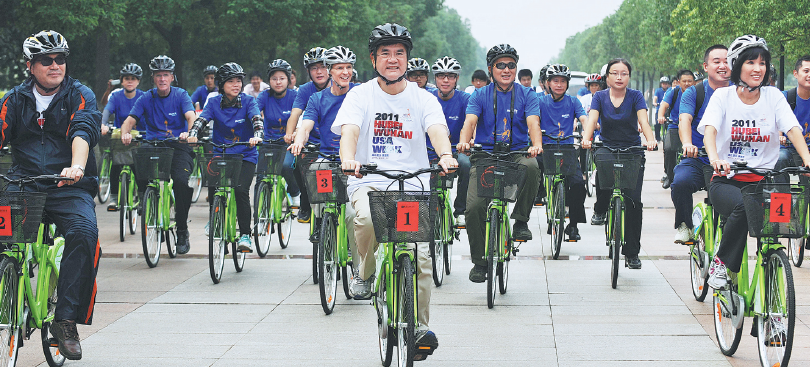
January 1950
EDUCATION:
1972: Bachelor's in political science, Yale University
1975: Law degree, Boston University
CAREER:
1997-2005: Governor of Washington state
2009-11: US secretary of commerce
2011-14: US ambassador to China
2014-present: Adviser and consultant at law firm Davis Wright Tremaine and chairman of Locke Global Strategies, which advises US and Chinese companies on cross-border trade and investment
MEMBERSHIPS:
Member of the Committee of 100, a nonpartisan organization composed of US citizens of Chinese descent who have achieved positions of leadership in a broad range of professions
China-US trade war 'won't solve problems'

When former US ambassador Gary Locke first visited China in the 1980s, what he saw when he arrived in Shanghai was "the biggest, most profound transformation the world has ever seen".
"The time was when China was just embarking on its opening-up reform policies," he recalled. "We arrived at night, drove into the city from the airport on a bus. I was just so completely overwhelmed by the sights. Hundreds of thousands of people riding bicycles.
"It was amazing to see the energy, confidence, the dynamism among the Chinese people everywhere we went. Not many highways, not many cars. Lots of construction of buildings, and so many cranes everywhere."
Since that first trip, the 68-year-old Locke has been to China many times in his public service career and as a United States citizen.
He served as US ambassador to China from 2011 to 2014, and before that was US commerce secretary and a two-term governor of Washington state, helping it to more than double exports to China to more than $5 billion a year.
He was also the first Chinese-American to serve as a US governor and the first to serve as US ambassador to China.
Locke, who was born in Seattle to immigrant parents from China, is now chairman of Locke Global Strategies, a business consultancy, and senior adviser and consultant to law firm Davis Wright Tremaine in Seattle.
During his ambassadorship in Beijing, he worked to open markets for US-made goods and services, and he reduced Chinese applicants' waiting times for US visa interviews from 100 days to three.
When Locke returns to China, he often visits his family village in Guangdong province. About 100 years ago, his grandfather lived in the village and moved to the US, but some relatives still live there.
"Each time I go back, I'm constantly amazed at the energy, the vitality and the dynamism of China," he said. "Seeing the great prosperity of China,,, in the countryside, big cities and small cities. It is a joy to go back to China every time."
But that joy is now tempered by the trade friction between the US and China.
"I am very disappointed in (US) President (Donald) Trump, I disagree with his tactics," Locke said. "Concerns that American companies and the American government have had for quite some time over China's trade policy are real, very legitimate, very serious, but engaging in a trade war and imposing tariffs on Chinese goods will not really help us solve those problems.
"You will hurt the American companies that buy some of these Chinese products used in their own manufacturing. So the cost of the inputs will be more expensive for American companies, which will automatically raise the price of the products they make.
"Chinese tariffs on American goods will deprive Chinese of high-quality products, whether it is agricultural, food, medicine or technology, and perhaps slow the growth of the Chinese economy and job-creation potential in China. So, it hurts both sides."


